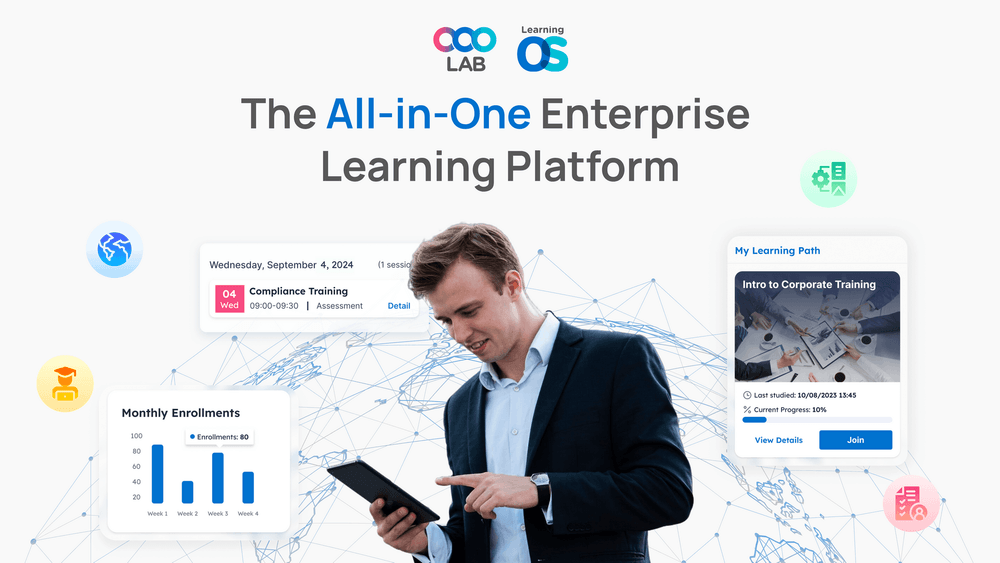

In today’s professional world, individual success isn’t measured solely by technical abilities or interpersonal skills. Two pivotal metrics, Social Quotient and Skill Quotient. play significant roles in determining workplace performance and career growth. Understanding their differences and why they both matter can help organizations create well-rounded employees and cohesive teams.

Social Quotient refers to an individual’s ability to effectively navigate and manage interpersonal relationships. It encompasses emotional intelligence, empathy, adaptability in social contexts, and communication skills.
High Social Quotient empowers individuals to:
- Build strong relationships with colleagues and clients.
- Resolve conflicts efficiently.
- Lead teams with emotional sensitivity.
For example, in collaborative environments, a high Social Quotient ensures seamless teamwork by fostering trust and understanding among members.
>>> Read more: Skills as the Key to Success in a Rapidly Evolving Workforce
>>> Read more: What is an Enterprise LMS
>>> Read more: Customization Options for Enterprise LMS
>>> Read more: Common challenges when implementing an Enterprise LMS
>>> Read more: Enterprise LMS - revolutionizing corporate training and development
Skill Quotient measures an individual’s proficiency in specific technical or professional areas. This includes their ability to perform job-specific tasks, adapt to technological tools, and apply acquired knowledge to real-world scenarios.
Organizations often use tools like Enterprise LMS to assess and enhance Skill Quotient. These platforms enable data-driven evaluations, personalized training modules, and measurable outcomes that help bridge skill gaps.
For example, employees with a high Skill Quotient in sales might leverage sales training programs to refine their negotiation and persuasion techniques, leading to better client outcomes.
Book Free Demo with us. Bring your Training and Learning to a new height with LearningOS.

The core focus of Social Quotient lies in enhancing interpersonal and emotional intelligence. It emphasizes understanding and managing relationships within a team or with external stakeholders. Individuals with a high Social Quotient excel at reading social cues, resolving conflicts, and fostering a positive team environment. These qualities are particularly vital in roles requiring leadership or extensive collaboration.
In contrast, the focus of Skill Quotient is on technical abilities and professional expertise. This quotient measures an individual’s mastery of job-specific skills such as data analysis, programming, or machinery operation. While Social Quotient improves interpersonal dynamics, Skill Quotient is indispensable for accomplishing precise, measurable tasks. Both quotients are essential but serve distinct purposes within the workplace.
Social Quotient often has a qualitative and subjective nature. It is applied in scenarios where understanding human behavior, emotions, and team dynamics is critical. For example, during a team conflict, an individual with a high Social Quotient might mediate effectively by addressing concerns with empathy and tact. Its applications are more fluid and situational, focusing on creating harmony and fostering collaboration in varied environments.
Skill Quotient, on the other hand, is more quantitative and objective. It applies to tasks that are technical, procedural, or process-oriented. Examples include coding a software application, analyzing financial data, or operating machinery in a production facility. These applications are task-driven and measurable, making them crucial for roles that require accuracy and efficiency.
Social Quotient plays a pivotal role in jobs requiring strong leadership, relationship management, and teamwork. For instance, Human Resources managers, team leaders, and client-facing roles thrive on a high Social Quotient. These individuals often need to address interpersonal challenges, provide motivation, and foster collaboration among diverse team members.
Skill Quotient, however, is indispensable for roles that demand technical precision and domain-specific expertise. Professions such as software developers, financial analysts, engineers, or surgeons rely on a high Skill Quotient to perform their duties effectively. While these roles may also benefit from interpersonal skills, their primary focus remains on executing tasks that require specialized knowledge and technical proficiency.
The assessment of Social Quotient is typically conducted through behavioral analysis, situational judgment tests, and feedback mechanisms. Personality assessments such as the Myers-Briggs Type Indicator or situational role-plays are often used to evaluate an individual’s social and emotional capabilities. Additionally, 360-degree reviews, where peers, subordinates, and managers provide feedback, offer a holistic understanding of one’s interpersonal effectiveness.
In contrast, Skill Quotient is assessed using standardized tests, performance evaluations, and professional certifications. These methods focus on measuring technical competencies with precision. Platforms like Enterprise Learning Management Systems often facilitate these assessments, offering courses, tests, and progress tracking to evaluate and enhance technical skills effectively.
Social Quotient significantly impacts team cohesion, trust, and collaboration. A team with high Social Quotient members communicates openly, supports each other, and resolves conflicts amicably. Leaders with a strong Social Quotient create inclusive environments that motivate employees and enhance productivity.
Skill Quotient, meanwhile, ensures the team possesses the technical expertise necessary to achieve goals. Teams with high Skill Quotient members excel at delivering quality work efficiently, meeting project deadlines, and solving complex technical challenges. However, an imbalance—where one quotient dominates the other—can hinder overall performance. A team needs both quotients to function optimally, blending interpersonal harmony with technical competence.
Adaptability is an area where both quotients play critical roles but in different ways. A high Social Quotient enables individuals to navigate change sensitively. For example, during organizational restructuring, team members with strong social skills can address concerns, maintain morale, and ensure that communication channels remain open. This emotional resilience helps teams adapt to transitions more smoothly.
Skill Quotient, on the other hand, ensures adaptability to technical changes. Employees with strong technical skills can quickly learn new tools, adapt to updated processes, or acquire knowledge in emerging fields. For instance, a software developer with a high Skill Quotient can quickly grasp new programming languages, enabling the organization to stay competitive in a rapidly evolving market. Both quotients are indispensable for thriving in a dynamic workplace environment.
Combining high Social and Skill Quotients creates dynamic teams capable of technical excellence and harmonious collaboration. Teams with members possessing both quotients demonstrate resilience, creativity, and high productivity.
According to research published by the Harvard Business Review, teams with high emotional and technical competencies outperform others by 20% on collaborative tasks. This highlights the synergy created by balancing these quotients.
Leaders with balanced Social and Skill Quotients inspire trust while demonstrating technical competence. This blend helps them guide their teams effectively through challenges and opportunities alike. Resilient leaders ensure their teams adapt to changes with minimal disruption while maintaining motivation.
In the era of automation and evolving workplaces, both quotients are critical. Social Quotient ensures human-centric roles remain relevant, while Skill Quotient aligns employees with technological advancements.
According to Forbes, organizations that prioritize emotional intelligence and technical upskilling see a 30% boost in overall employee performance. Additionally, using tools like Enterprise LMS allows businesses to implement targeted strategies for developing these quotients simultaneously. For instance, soft skills training can be integrated with technical modules to create a holistic learning experience.
In fast-paced industries like tech startups, balancing these quotients is essential. Employees with high Social Quotient foster collaboration in cross-functional teams, while those with strong Skill Quotient ensure technical projects meet deadlines and quality standards.
Social Quotient and Skill Quotient are complementary metrics that collectively shape workplace success. While Social Quotient drives relationships and team dynamics, Skill Quotient ensures technical proficiency and task execution.
Organizations must foster a balance between these quotients to create adaptable, collaborative, and efficient workforces. Leveraging platforms like Enterprise LMS and implementing sales training programs can enhance both quotients, ensuring employees thrive in their roles and contribute to long-term organizational success.
By understanding and prioritizing these quotients, businesses can unlock the full potential of their teams, preparing them for the challenges and opportunities of the future.
At OOOLAB (pronounced 'uːlæb'), our mission is to make complex learning operations simple. We aim to positively impact the lives of over 1,000,000 learners and educators by the end of 2026.
OOOLAB's LearningOS provides educational institutions and corporate enterprises with an all-in-one solution to create and deliver engaging learning experiences.
We meet organizations' needs or support your growth. We provide undivided attention. We provide:
1. Dedicated success manager: We offer direct communication with a real human who'll discuss your enterprises unique learning operations and goals.
2. Personalized setup: Our team will help you transition to LearningOS on your schedule, one step at a time.
3. Around the clock support: Get help from us any time, and in any time zone.
We have recently launched a new AI training tool, Skill Quotient OS, designed to elevate hybrid training to new heights. It offers role-play exercises with scenarios and assessments.This tool can apply in sales training, corporate development and customer support training in any industry.
Reach out to us at: LinkedIn, Facebook, Instagram, Tiktok, X
1. What are the main benefits of LearningOS
Our platform is easy to use and automates all aspects of your learning operations. It efficiently manages complex tasks, allowing you to concentrate on delivering exceptional learning experiences.
2. What main features does LearningOS offer?
Our all-in-one software solution combines a Content Management System, a Learning Management System, content authoring tools, and a mobile friendly Learner Portal.
3. Can your platform be used for corporate enterprises?
Absolutely! LearningOS is an Enterprise LMS is a great fit for corporate learning. In fact, we have clients with up to 700,000 employees using LearningOS! Upskill your workforce by creating and assigning interactive eLearning content while effortlessly tracking employee progress.
4. Who currently uses your platform?
Our platform is currently used by over 120,000+ learners, parents, and employees across 21 countries worldwide!
5. What types of content options are available on your platform?
We offer ready-to-go curriculums for various educational purposes or our expert design team can build a custom course for you. We can also upload your existing learning materials and enhance them digitally.
6. What is unique about LearningOS?
Our platform, designed by educators for educators, provides you with all the tools you need to scale. Build and promote your own hybrid and blended learning courses and save money on licensing fees by owning your own proprietary content.
7. How can I get started?
Schedule a meeting with our experts and we’ll talk about how our platform can address your unique challenges and help to grow your business.